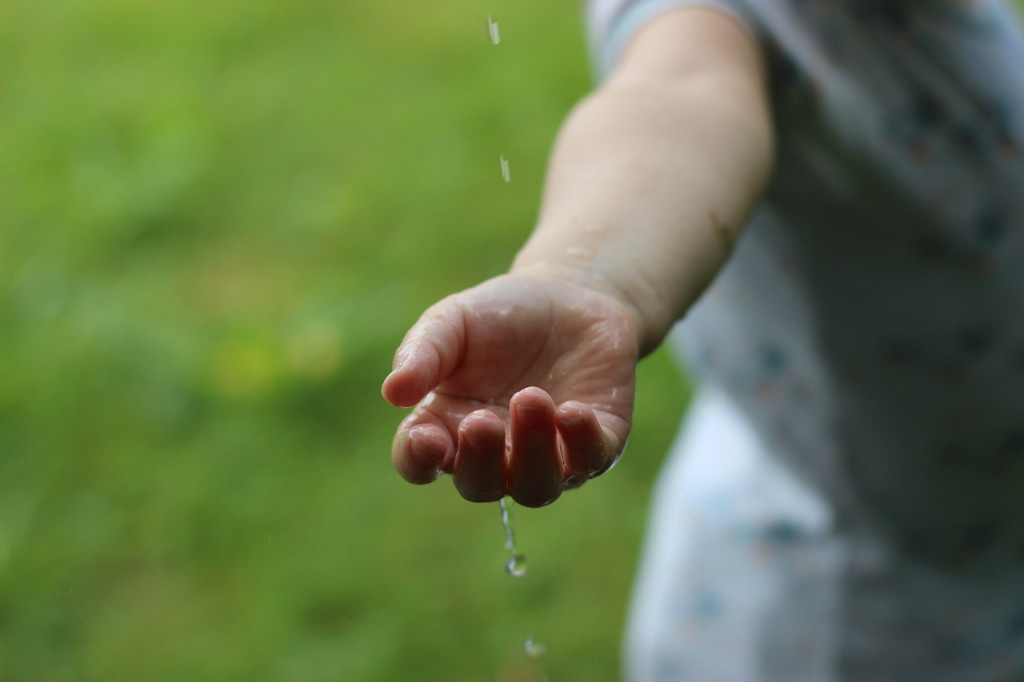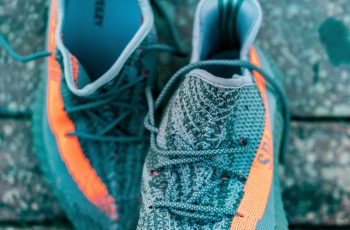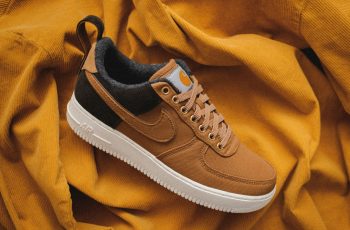Slip-On Sneakers: A Look Into Sustainability And Ethical Production takes you on a journey into the world of footwear, where comfort meets conscience. In this article, you’ll discover how slip-on sneakers are not only a stylish choice but also a sustainable one. We’ll explore the steps taken by brands to ensure ethical production practices and the use of eco-friendly materials. From reducing waste to supporting fair labor conditions, slip-on sneakers offer a footwear solution that aligns with your values without compromising on style. Get ready to step into a world where fashion and ethics truly walk hand in hand.

Materials Used in Slip-On Sneaker Production
Recycled Materials
In an effort to reduce waste and environmental impact, many slip-on sneaker brands are now using recycled materials in the production process. These materials can include recycled polyester, which is made from recycled plastic bottles, as well as recycled rubber and foam. By using recycled materials, brands are able to divert waste from landfills and reduce the need for new raw materials.
Organic Materials
To promote sustainability, slip-on sneaker brands are also turning to organic materials. Organic cotton, for example, is grown without the use of pesticides or synthetic fertilizers, making it a more eco-friendly alternative to conventional cotton. Brands may also use organic dyes and inks, which are free from harmful chemicals and pollutants. By using organic materials, brands are able to support sustainable farming practices and minimize their impact on the environment.
Vegan Alternatives
For those who prioritize animal welfare, slip-on sneaker brands are offering vegan alternatives to traditional leather. These vegan materials are typically made from synthetic fabrics such as microfiber or recycled polyester, which mimic the look and feel of leather while avoiding the use of animal products. By offering vegan alternatives, brands are able to cater to a wider range of consumers while promoting cruelty-free practices in the fashion industry.
Supply Chain Transparency and Fair Trade Practices
Traceability and Accountability
To ensure ethical production, slip-on sneaker brands are prioritizing supply chain transparency. This means tracing the journey of materials from the source to the consumer, ensuring that each step of the process meets ethical standards. By implementing traceability measures, brands can hold themselves and their suppliers accountable for fair labor practices and environmental sustainability.
Worker Rights and Fair Wages
In line with fair trade practices, slip-on sneaker brands are committed to protecting the rights of workers in their supply chain. This includes providing safe working conditions, fair wages, and reasonable working hours. By partnering with factories and suppliers that adhere to these standards, brands are able to support the well-being of workers while promoting sustainable and ethical practices within the industry.
Reducing Waste and Environmental Impact
Zero-Waste Manufacturing
One of the key initiatives in sustainable slip-on sneaker production is zero-waste manufacturing. This involves designing and producing sneakers in a way that eliminates waste at every stage of the process. Through careful planning and innovative techniques, brands are able to minimize the use of materials, optimize patterns and cutting, and repurpose or recycle any excess materials. By adopting zero-waste practices, brands are able to significantly reduce their environmental impact.
Water and Energy Conservation
Another important aspect of sustainable production is water and energy conservation. Slip-on sneaker brands are implementing measures to reduce water consumption in manufacturing processes, such as using water-efficient machinery and recycling water where possible. Additionally, brands are exploring renewable energy sources and improving energy efficiency in their facilities. By prioritizing water and energy conservation, brands can minimize their carbon footprint and contribute to a more environmentally sustainable future.
Eco-Friendly Packaging and Shipping
Biodegradable Materials
Sustainable slip-on sneaker brands are taking steps to minimize their packaging waste by opting for biodegradable materials. This includes using packaging made from recycled or sustainably sourced materials, such as cardboard or compostable plastics. By using biodegradable materials, brands can ensure that their packaging will break down naturally over time, reducing the amount of waste that ends up in landfills.
Carbon Neutral Shipping
To further reduce their environmental impact, slip-on sneaker brands are working towards carbon-neutral shipping practices. This involves offsetting the carbon emissions generated during the transportation of their products by investing in renewable energy projects or purchasing carbon credits. By prioritizing carbon neutrality, brands can take responsibility for the greenhouse gas emissions associated with their shipping operations and work towards a more sustainable supply chain.

Local Production and Support for Artisans
Local Manufacturing
Some slip-on sneaker brands are embracing local manufacturing as a way to support local communities and reduce their carbon footprint. By producing their sneakers locally, brands can minimize the distance traveled during transportation, which in turn reduces emissions and energy consumption. Additionally, local manufacturing allows brands to support local economies and preserve traditional craftsmanship.
Supporting Traditional Craftsmanship
In addition to local manufacturing, slip-on sneaker brands are also supporting traditional craftsmanship by partnering with artisans and skilled craftsmen. These collaborations enable brands to incorporate unique designs and techniques into their sneakers while preserving cultural heritage. By valuing and promoting traditional craftsmanship, brands can contribute to the livelihoods of artisans and foster a sense of cultural appreciation within the fashion industry.
Certifications and Standards for Ethical Production
Fairtrade Certification
Slip-on sneaker brands can attain Fairtrade certification by meeting a specific set of social, economic, and environmental criteria. This certification ensures that workers involved in the production of the sneakers are receiving fair wages and working in safe conditions. It also guarantees that the production processes meet certain environmental standards. By obtaining Fairtrade certification, brands can provide assurance to consumers that their sneakers are produced in an ethical and sustainable manner.
Global Organic Textile Standard
The Global Organic Textile Standard (GOTS) is another important certification for sustainable slip-on sneaker brands. GOTS certifies that the materials used in the production of the sneakers, such as organic cotton or organic dyes, meet strict environmental and social criteria. This includes the use of non-toxic chemicals, the promotion of biodiversity, and the protection of workers’ rights. Brands that adhere to GOTS can ensure that their sneakers are produced using sustainable and organic materials.

Collaborations and Partnerships for Sustainability
Sustainable Material Innovations
Slip-on sneaker brands are actively seeking collaborations and partnerships with sustainable material innovators. These collaborations allow brands to incorporate new and innovative materials into their sneakers, such as plant-based fibers or recycled plastics. By partnering with sustainable material innovators, brands can stay at the forefront of eco-friendly technology and offer consumers innovative and sustainable footwear options.
Partnerships with Environmental Organizations
To further their commitment to sustainability, slip-on sneaker brands are forming partnerships with environmental organizations. These partnerships allow brands to support and contribute to environmental initiatives, such as reforestation projects or water conservation efforts. By working together with environmental organizations, brands can amplify their impact and promote positive change in the fashion industry.
Consumer Awareness and Education
Know Your Brands
As a conscientious consumer, it is essential to research and understand the practices of slip-on sneaker brands before making a purchase. By familiarizing yourself with brands that prioritize sustainability and ethical production, you can make informed choices that align with your values. Look for brands that are transparent about their supply chain, use sustainable materials, and have certifications or partnerships that demonstrate their commitment to ethical production.
Sustainable Fashion Guides
To help consumers navigate the world of sustainable fashion, there are a variety of sustainable fashion guides and resources available. These guides provide information on sustainable slip-on sneaker brands, their production practices, and their impact on the environment. By educating yourself about sustainable fashion, you can make choices that align with your values and contribute to a more sustainable and ethical fashion industry.
The Role of Influencers and Fashion Industry
Promoting Sustainable Slip-On Sneaker Brands
Influencers have a significant impact on consumer behavior and can play a crucial role in promoting sustainable slip-on sneaker brands. By partnering with influencers who share their values, brands can reach a wider audience and raise awareness about their commitment to sustainability. Influencers can showcase sustainable slip-on sneakers in their content and educate their followers about the importance of ethical production and sustainable fashion.
Fashion Industry’s Responsibility
The fashion industry as a whole has a responsibility to prioritize sustainability and ethical production. By adopting sustainable practices, brands can reduce their environmental impact and contribute positively to society. The industry should prioritize transparency, fair trade, and the use of sustainable materials to ensure that slip-on sneakers are produced in an ethical and environmentally-friendly manner. By embracing ethical production, the fashion industry can set a positive example and inspire other sectors to follow suit.
Future Trends and Innovations in Sustainable Sneaker Production
Circular Design Principles
The future of sustainable slip-on sneaker production lies in circular design principles. This means designing sneakers with a focus on durability, repairability, and recycling. Brands are exploring innovative methods, such as modular designs or the use of biodegradable materials, to create sneakers that can be easily disassembled and recycled at the end of their lifecycle. By adopting circular design principles, brands can minimize waste and maximize the lifespan of their sneakers.
Emerging Sustainable Materials
As technology progresses, new sustainable materials are emerging in the world of slip-on sneaker production. Brands are exploring alternatives to traditional materials, such as plant-based leathers or fibers made from agricultural waste. These emerging materials offer eco-friendly alternatives without compromising on style or performance. By embracing these sustainable materials, brands can pave the way for a more sustainable and ethical future in the sneaker industry.
Overall, the production of slip-on sneakers is undergoing a significant shift towards sustainability and ethical practices. From the materials used to the supply chain transparency and packaging, brands are actively prioritizing environmental conservation and social responsibility. As a consumer, you have the power to support these brands by making conscious choices and advocating for a more sustainable and ethical fashion industry. By choosing slip-on sneakers that align with your values, you can contribute to a more sustainable future without sacrificing style or comfort.


